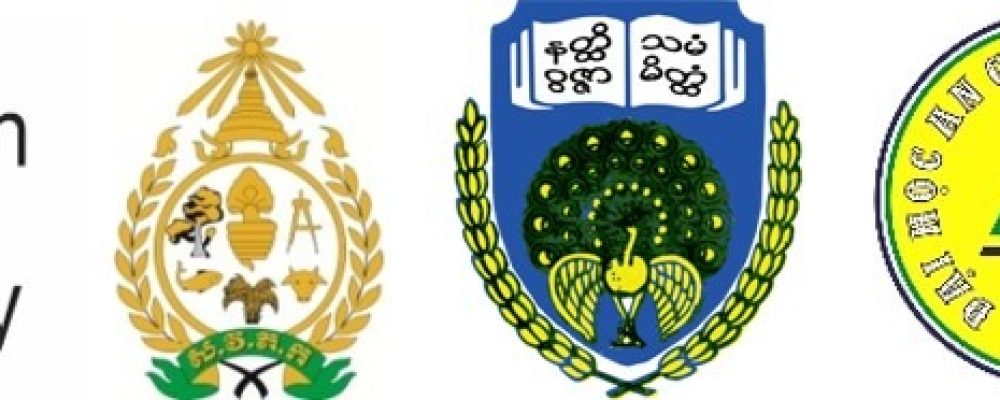Aim of the workshop
Aim of the workshop is to share research findings of the research project entitled “Promoting the floating rice-based agroecological farming systems for a healthy society and adaptation to climate changes in the Lower Mekong Region and Myanmar”, funded by The Mitsui & Co. Environment Fund from 2017 to 2019, led by A/Prof Jamie Pittock and Dr. Van Kien Nguyen (the Australian National University), partnered with Yangon University (Prof Nilar Nilar Aung), Ecoland Research Center – Royal Agriculture University (Dr Malyne Naeng), Research Center for Rural Development – An Giang University (Mr Le Thanh Phong)
The workshop will take place in Yangon, Myanmar on 18-19 January 2019.
Initial research findings of the research activities will be presented
- Undertaking socio-economic and value chains studies for floating rice: The research consortium from ANU and research partners in An Giang University of Vietnam, Royal Agricultural University of Cambodia, and Yangon University & Research Association for Development of Myanmar will undertake an in-depth socio-economic study and value chains of floating rice in Vietnam, Cambodia and Myanmar. The market research results will help research team and local partners to design strategies for promoting the floating rice products.
- Floating rice-based farming systems will be established or identified, and tested in each country using participatory approaches. One or two sites in each country will be selected for testing several integrated farming systems (floating rice-inland fish monitoring during flood season-chili/cassava/maize/corn/sesame/black gram (beans)/pasture rotated in dry season). The pilot farming systems will be undertaken with local stakeholders in three seasonal years. The first year starts in early April or May 2017 for the first crop experiment and ends in March or April 2018. The second year experiment will be rotated as the same routine, ends in April/May 2020. A cost-benefit comparison and agronomic analysis among different floating rice based farming systems and comparison with intensive short-term rice based farming systems in each country (the control system) will be conducted. Ecosystem services of both floating rice and intensive rice based systems will be assessed. Exchange of local researchers from each country will enable lessons on successes and barriers to be identified and shared.
- Carrying out community-based floating rice seed selection and genetic exchanges among Vietnam, Cambodia and Myanmar. The floating rice seeds were identified as the top priority for promoting commercial products in Vietnam, Cambodia and Myanmar. Since 1980s, no research on rice seed selection has been carried out, and its quality is perceived as hard to eat compared to short-term white rice. However, there is a potential market for chemical-free rice in the region. Therefore, the community seed selection and genetic exchange is one of the key components for success. This research expects each country can select one suitable floating rice variety that adapts well to abnormal floods and meets consumer demands.
- The synergies among inland fisheries and biodiversity conservation in the floating rice-based farming systems vs intensive systems will be assessed in the field. Biodiversity, inland fresh water fish, other aquatic animals and local food consumption by small scale farm holders will be monitored in each pilot site. Local researchers will be trained on the collection and monitoring of indicators for rice farmers.
- Promotion and marketing activities toward a healthy society for floating rice products in three countries (Vietnam, Cambodia and Myanmar). Taking lessons from the success of marketing floating rice in Vietnam in the last three years, this research component will promote floating rice to build niche market chemical free rice in domestic markets and potential international markets through consultation with various stakeholders (middle men, traders, sellers, media, researchers, NGOs and donors). A floating rice harvest festival will be carried out in each country (Vietnam, Cambodia, and Myanmar) in year two of the project to promote this special rice variety.
- Nutritional analysis of floating rice, fishery and upland crops will be carried out at each site to identify healthier rice (including low-medium glycemic index and chemical free rice) and other safe vegetable farm products. Training will build the capacity of local partners for testing the quality of farm products, to promote healthy food in the Mekong region and Myanmar.
- Dissiminating research findings into the wider region in Southeast Asia, Asia and West Africa. The research findings of this project will be presented at regional conferences or workshops in sustainable agriculture, food security, and agricultural conservation or food security. At the final year of the project, all research reports will be shared via policy briefs, conference papers, or international journal articles. A regional workshop will be held in one of three partner countries to promote the sustainable floating rice-based systems in the Mekong Region and Myanmar. Potential participants are government agencies from the Mekong region, academic institution, private actors, NGOs, farmers and FAO representatives in Greater Mekong Sub-region.
Total participants: 40 (25 local participants, 03 researchers from Vietnam (An Giang University), 03 researchers from Cambodia (Royal University of Agriculture), 2 researchers from Australia (The Australian National University).
Research team (ANU: A/Prof Jamie Pittock & Dr. Van Kien Nguyen),
Participants from Myanmar
- The Mitsui & Co. Environment Fund (representatives of the Mitsui Co.)
- Ministry of agriculture, irrigation, livestock
- Department of Agriculture
- Department of Agriculture Research
- Yezin Agriculture University
- Maubin University
- Hinthada University
- NGOs: WCS, WWF, etc
- IWMI, IRRI, IFAD, FAO, DFAT, and ACIA in Myanmar
- International Crane Foundation (USA)
- Maubin township authorities
- Nyandone township authorities
- Key farmers in the project sites
- Business sectors and media,
- Researchers from Department of Geography, Department of Anthropology, Department of Zoology, Department of Botany and Department of Medical Research (Yangon University)
More information here

